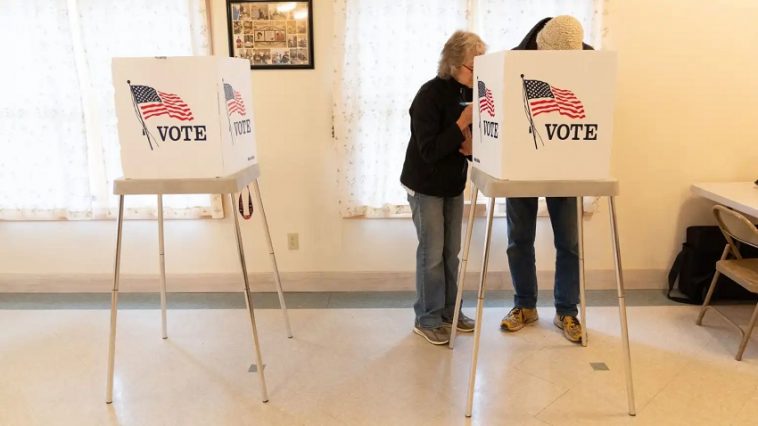Missoula, MT – A proposed bill in Montana could make it more difficult for independent and minor-party candidates to qualify for elections. House Bill 207, which gained early approval in the state Legislature on Friday, would significantly increase the number of signatures required for independent candidates to get on the ballot while shortening the time they have to gather those signatures.
The bill, which passed the House State Administration Committee on an 11-8 vote, would raise the signature requirement for legislative candidates running as independents to 10% of the total votes cast for the successful candidate in the previous general election. Currently, the requirement is 5%. For statewide and federal races, the bill mandates a signature threshold of 5%, down from a previously proposed 15%. The change in the bill is a response to concerns about making the threshold more reasonable, but it still represents a significant increase over what is required in many other states.
Proponents of the bill argue that it is a necessary step to ensure the integrity of elections. Rep. Jodee Etchart, R-Billings, who introduced the bill, suggested that the higher requirements would prevent potential abuse of the system while keeping the process fair for all candidates.
However, the bill has faced significant opposition. Critics argue that it could serve to limit competition, particularly for independent and third-party candidates. Rep. Peter Strand, D-Bozeman, expressed concerns during the committee hearing, questioning whether the bill was an attempt to suppress challengers. “This makes me a little concerned or curious about which legislators are worried about competition,” Strand remarked.
Rep. Julie Darling, R-Helena, who chairs the committee, dismissed these concerns, stating, “As a legislator, I think that we should all be worried about competition. That’s our job.”
In addition to the increase in signatures, the bill also introduces a significant change to the timeframe for gathering them. Under the current law, independent candidates have a window of up to 145 days before a primary election and no later than 85 days before the general election to register and start gathering signatures. HB 207 would shorten this window to 105 days before the election for early registration and 90 days for late registration, giving candidates less time to collect the necessary signatures.
For many independent candidates, the signature requirement can be a substantial barrier to running for office. Rep. Shelly Fyant, D-Arlee, pointed out that Montana’s 5% signature requirement is already higher than in many other states. She shared an example of an independent candidate who had to gather more than 100 additional signatures to account for those that were disqualified, highlighting the added burden of meeting these thresholds.
One of the most significant concerns surrounding the bill is the requirement that signatories be active voters. Montana has a large number of voters whose registrations are not up-to-date, which could disqualify thousands of potential signatories. Critics argue this could make it even harder for independent candidates to meet the requirements.
Independent candidates have had a notable presence in recent elections, with some even running competitive races. In 2022, independent Gary Buchanan received 21% of the vote in Montana’s Eastern District U.S. House race, finishing second behind Republican incumbent Matt Rosendale. Buchanan, who had the support of more than 200 volunteers collecting signatures, has criticized the bill, calling it an effort to keep independent voices off the ballot. He argued that independent candidates are gaining support while the major political parties are seeing a decline in their influence.
The bill’s impact on third-party candidates could also be felt in future races. Republicans have previously tried to convince third-party candidates to drop out of federal elections, and Democrats have challenged Green Party candidates in federal races. Most recently, in the 2024 U.S. Senate race, the Green Party candidate, Robert Barb, earned a small fraction of the vote, though his candidacy still drew attention.
Overall, House Bill 207 has sparked a heated debate about the accessibility of Montana’s electoral system. While some view it as a necessary safeguard, others believe it could undermine democracy by making it harder for non-major party candidates to run and potentially reducing voter choice in future elections.



